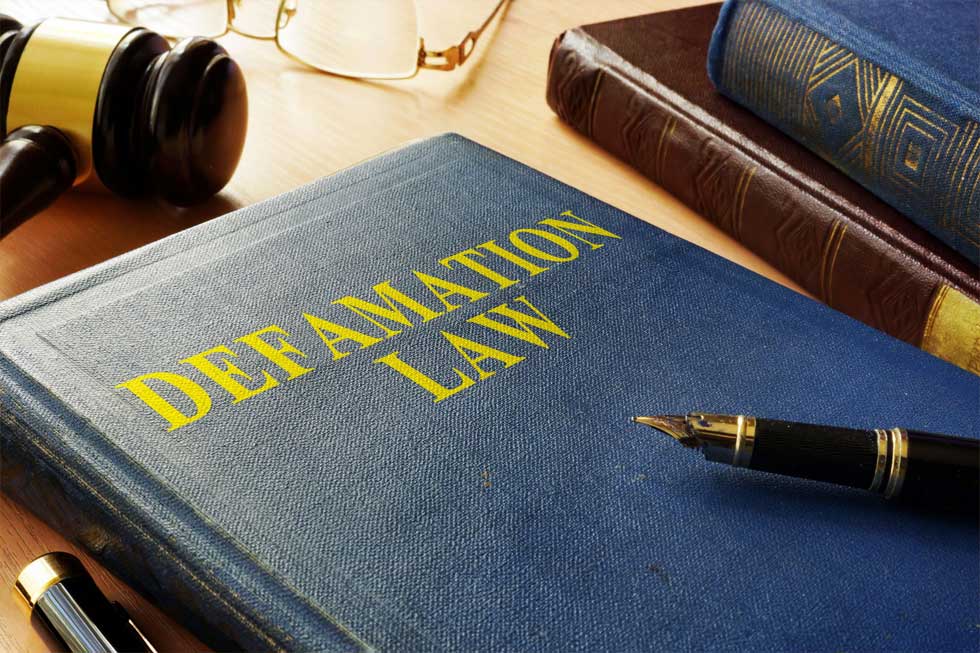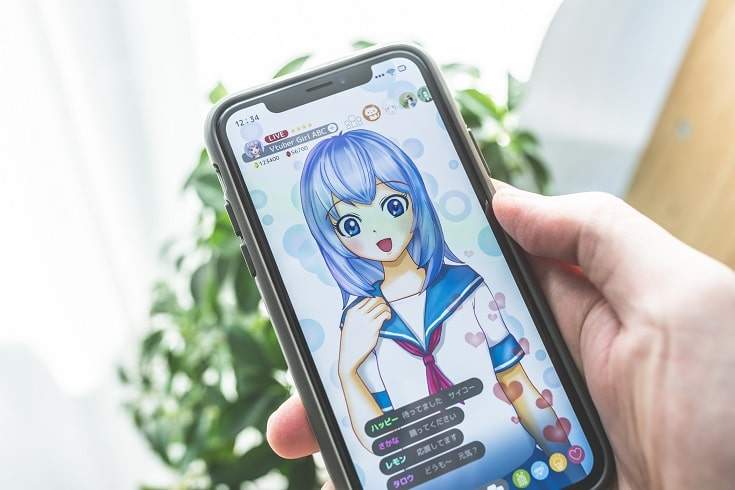When Your Reputation is Defamed or Your Privacy is Violated by Mentioning Your Name in a YouTube Video

On YouTube, issues such as copyright infringement and violation of portrait rights are incessant and have become problematic. However, not only these, but in recent years, as the popularity of “outspoken YouTubers” who express their opinions to the public in a radical tone has increased, defamation and privacy infringement have also become noticeable.
We will explain how to respond when insults and slander on YouTube videos, especially when they amount to defamation or privacy infringement.
Revision of YouTube’s Terms and the “No Slander” Rule
In June 2019 (Heisei 31), YouTube’s advertising regulations were strengthened due to a revision in their terms. The “No Slander” rule was clarified, and additional examples were added where videos that fall under the category of “flaming/insulting” by “outspoken YouTubers” who express their opinions in an extreme manner, would be subject to no ad display or ad restrictions. This includes content that “insults or defames individuals by name” and “malicious attacks, defamation, and slander against individuals”.
It has become difficult for “outspoken YouTubers” to express opinions that could be taken as abusive language as before, and it has become noticeable that videos of the “outspoken” genre are often without ads.
However, this is ultimately an issue of advertising regulations. Even if it was a problem for “outspoken YouTubers”, it would not have much impact on general users whose main purpose is not ad revenue. Also, it is difficult to judge to what extent it is considered a violation, whether it is slander or sarcasm. Therefore, the “No Slander” rule does not necessarily mean that content that “insults or defames individuals by name” and “malicious attacks, defamation, and slander against individuals” will disappear. In fact, the slander and defamation by “outspoken YouTubers” continues in a modified form, and the slander and defamation by YouTuber videos have not decreased significantly.
What is Defamation?

What legal issues arise when someone’s reputation is defamed by identifying them on YouTube? To begin with, under what circumstances does defamation occur, and what penalties are provided for it?
Requirements for Defamation
The criminal offense of defamation, as stipulated by Article 230 of the Japanese Penal Code (刑法第230条), requires the presentation of facts. It does not hold unless specific facts (matters that can be determined to exist or not with evidence, etc.) are shown.
1. Anyone who publicly presents facts and defames the reputation of another person, regardless of whether the facts are true or not, shall be punished with imprisonment for up to three years or a fine of up to 500,000 yen.
Article 230 of the Japanese Penal Code
On the other hand, the requirements for civil defamation are not clearly defined.
The court may order a person who has defamed the reputation of another person to take appropriate measures to restore the reputation, either in lieu of or in addition to damages, at the request of the victim.
Article 723 of the Japanese Civil Code (民法第723条)
Regarding this point, case law states, “The tort of defamation is established if the expression in question lowers the objective evaluation received from society regarding a person’s personality, virtue, reputation, credit, etc., regardless of whether it presents facts or expresses opinions or comments” (Supreme Court of Japan, September 9, 1997 ruling).
Therefore, in civil cases, if an expression lowers a person’s social evaluation based on the standard of ordinary people’s senses, defamation is established regardless of whether it presents facts or expresses opinions or comments.
https://monolith.law/reputation/defamation[ja]
https://monolith.law/reputation/defamation-and-decline-in-social-reputation[ja]
YouTube Videos and Defamation
If you are slandered on a YouTube video by giving your name or personal information that can identify you, you should not leave it unattended. There is a significant risk, so take appropriate action promptly.
If someone says, “○○ was arrested for rape when he was a student,” “He has a criminal record,” “△△ works at a cabaret club,” “He is having an affair with a colleague,” etc., even if these are baseless rumors, you never know what others might think. There is also a possibility that the information will be reposted on bulletin boards or SNS and spread.
If you post such a comment that “shows facts” and lowers the social evaluation of others on internet bulletin boards or SNS, it constitutes defamation. The same applies to YouTube videos. Defamation is established even if the facts disclosed are true. For example, even if you are actually having an affair, if a third party discloses on a YouTube video that “○○ is having an affair,” it constitutes defamation.
If it constitutes defamation, do not respond with foul language or insults to match the other party, but calmly request YouTube to delete the video.
Handling Defamation on YouTube

When you go to “YouTube Help” and proceed from “YouTube’s Policies” to “Legal Policies”, you will find the following written under the section on “Defamation”.
Defamation laws vary by country, but generally, content that harms the reputation of another person or company is considered defamatory. The definition of defamation varies worldwide, but generally, it is considered defamation to make false statements or actions that harm someone’s reputation, or to isolate or avoid someone.
At first glance, it seems that defamation only occurs in cases of “false statements or actions”. However, it is also stated that “When blocking for defamation on YouTube, we also consider the legal aspects of the region”, so in Japan, it would follow Article 230, Paragraph 1 of the Japanese Penal Code.
Direct Contact with Users
Under the section on “Defamation”, it is stated:
In some cases, the user who uploaded the content may be willing to remove harmful content. Since obtaining a court order can be costly and time-consuming, YouTube recommends contacting the user who uploaded the problematic content directly. If you cannot contact the user who uploaded the video, consider whether the video is subject to removal based on YouTube’s privacy policy or harassment policy.
There may be cases where copyright infringement is unintentional. The possibility may be even greater in the case of portrait rights. However, it is almost unthinkable that someone who uploads a video that defames someone’s reputation is unaware of the possibility of defamation.
Therefore, even if you contact the user who uploaded the video directly, it is unlikely that they will readily agree to remove it, and contacting them may often backfire.
Filing a Defamation Claim with YouTube
To file a defamation claim with YouTube, use the “Removal Request Web Form”.
Search for “Defamation” in “Help” and click on “Filing a Defamation Claim”. On the opened “Filing a Defamation Claim” page, where it says “Country where you are filing the claim”, select “Japan” and the “Removal Request Web Form” will open.
- Enter your “Name” and confirm your “Email Address” (which is automatically displayed).
- Paste the “URL of the video”.
- It says, “To file a defamation claim, you need to clearly identify the subject of the claim”, and “How did you identify the subject of the slander (all that apply)” so select from “My name, My image, My voice, My business name, Other”.
- It says, “Please enter the exact wording in the video or metadata that constitutes defamation. Phrases like “the entire video” are invalid”. Be careful to write this part. The person in charge is also busy, so it’s important to write clearly and choose your words carefully.
- It says, “Please select a location (all that apply)”, and select from “In the video, Video title, Video description, Channel title, profile, or overview section, Other”.
- It says, “Please explain why this statement is considered defamation in your country”. Specify which part is considered defamation for what reason, and which law in Japan it violates, and write it down carefully.
Finally, swear that the information provided is not false or incomplete, sign, and send to complete. Please note that the claim will be notified to the user who uploaded the video. If you do not want to disclose your name or email alias to the user who uploaded the video, you need to specify this.
Instead of saying “It’s unpleasant” or “I can’t stand it”, refer to Article 230, Paragraph 1 of the Penal Code and Supreme Court precedents, and calmly and objectively describe how the other party’s remarks violate the law and constitute defamation.
Legal Procedures

When a defamation claim is made, the reported video is reviewed by YouTube. If it is determined to be a video that defames someone’s honor, the video will be removed.
Even if you make a defamation claim to YouTube and the video is not removed, there are cases where the video is removed if a lawyer requests it. Therefore, it is also an option to consult with a lawyer at this stage.
Provisional Disposition Application for Video Removal
If a request for removal outside of court is unsuccessful, or if you want to pursue the legal responsibility of the user who uploaded the video, you need to use legal procedures. This is also the case for privacy violations. First, you apply to the court for a “provisional disposition order for video removal” (Article 23, Paragraph 2 of the Japanese Civil Preservation Law). You need to submit a petition describing the content of the right to be preserved, the fact of the right violation, and the necessity of preservation, and evidence to prove them (Article 13 of the Japanese Civil Preservation Law).
Request for Disclosure of Sender Information
At the same time, since the operator generally does not comply with the disclosure of user personal information, you request the disclosure of sender information to YouTube LLC, a content provider established under the laws of the State of Delaware, United States, through the court. From the obtained IP address and timestamp, you request the disclosure of the sender information of the posted article to Google LLC, a limited liability company also established under the laws of the State of Delaware, United States, which represents YouTube LLC as a managing member. Google LLC has the address used to earn advertising revenue.
https://monolith.law/reputation/provider-liability-limitation-law[ja]
Both can be processed in Japanese courts. Regarding international jurisdiction, we explain in another article on our site, “What are defamation-related trials and provisional dispositions and jurisdiction courts”, but it is extremely difficult to succeed in requesting the disclosure of sender information on your own, so you should ask a lawyer to handle it.
https://monolith.law/reputation/jurisdiction-of-judgement[ja]
If the sender’s information is disclosed
Once the sender’s information is disclosed and the sender is identified, you can execute the chosen response method.
The following options are possible:
- Make them pledge not to defame in the future
- Claim for damages
- File a criminal complaint
- Request an apology advertisement (i.e., demand for the release of an apology video)
The last option, “Requesting an apology advertisement (i.e., demanding the release of an apology video)”, is generally not often requested as it has a high potential to exacerbate the damage in cases of defamation or privacy violation. However, if the damage has already spread, or in the case of celebrities or companies, this could be an option.
Summary
If you are insulted or defamed in a YouTube video, there is a possibility that a far greater number of people will see it compared to message boards or social media. Do not ignore such statements that constitute defamation or invasion of privacy. Consult with an experienced attorney and aim for a swift resolution.
Category: Internet





















